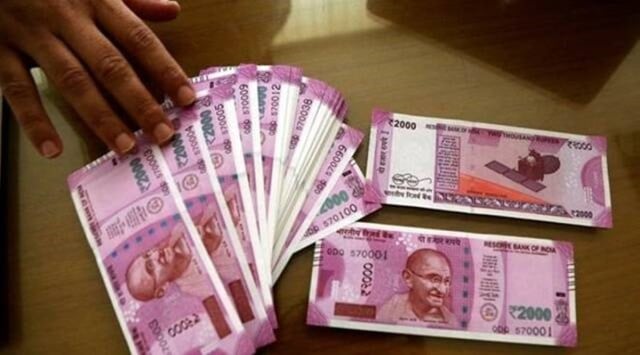Gold traders cautious but grain wholesalers of Pune say RBI’s move to withdraw Rs 2,000 notes won’t affect them
The Reserve Bank of India (RBI) announcement of the withdrawal of Rs 2,000 notes has had an overnight impact on gold and grain market traders.
 Pune’ grain market traders appeared to have taken a much more lenient view of the matter. (File photo)
Pune’ grain market traders appeared to have taken a much more lenient view of the matter. (File photo) A day after the Reserve Bank of India (RBI) announced the withdrawal of Rs 2,000 notes from circulation, gold traders of Pune have decided to be cautious while accepting the notes. Meanwhile, grain traders of Pune’s wholesale market said the decision will not affect them much.
Amit Modak, CEO of Pune-headquartered P N Gadgil and Sons — a gold and silver jewellery shop with a global presence — said they have decided to accept the notes but will get their customers to fill up a form indemnifying them.
“Those who pay for their purchases with Rs 2,000 denomination notes will have to sign the forms which will bear the names and other details of the customers,” he said. This, Modak said, is to safeguard their business against any scrutiny, if any, from the government departments later on.
“The Rs 2,000 notes will continue to be legal tender and we as the end receivers might have to answer questions about the source of the notes when we go to deposit the same post September and this form would indemnify us,” he said.
Modak, however, said only 30 per cent of their customers still use cash to pay while most have migrated to electronic or UPI modes for payments.
Another Pune-based jeweller, Vipul Ashetkar of Krishna Rajaram Ashtekar and Company said until now, they have not seen the crowd swell at their shops trying to get rid of their Rs 2,000 notes. “We will continue to accept the notes but get a form signed to indemnify us,” he said. Like Modak, Ashetkar also said the majority of their trade is through virtual or plastic money. “Only during Diwali when people get their bonuses do they prefer to pay in hard cash,” he said.
Meanwhile, Pune’ grain market traders appeared to have taken a much more lenient view of the matter. Walchand Sancheti, president of The Poona Merchants Chamber, the apex body of grain traders in Pune, said majority of their trade happens through cheques. “The government has allowed such denomination notes to be deposited till September 30 so we do not see any problem in this,” he said.
On Friday, the Reserve Bank of India (RBI) announced the withdrawal of Rs 2,000 notes from circulation although they would remain to be a legal tender. The RBI said these notes can be deposited in the banks during the normal course of business till September 30, with an upper limit of Rs 20,000 at a time. The notes can be exchanged for smaller denominations from May 23.
The RBI has called this move normal and pointed out that other nations have similarly carried out such exercises from time to time. Back in 2016, the central government had withdrawn Rs 500 and Rs 1,000 notes from circulation and had stopped them from being legal tenders. The demonetisation exercise had led to months of long queues of people outside banks to exchange their old notes.



































